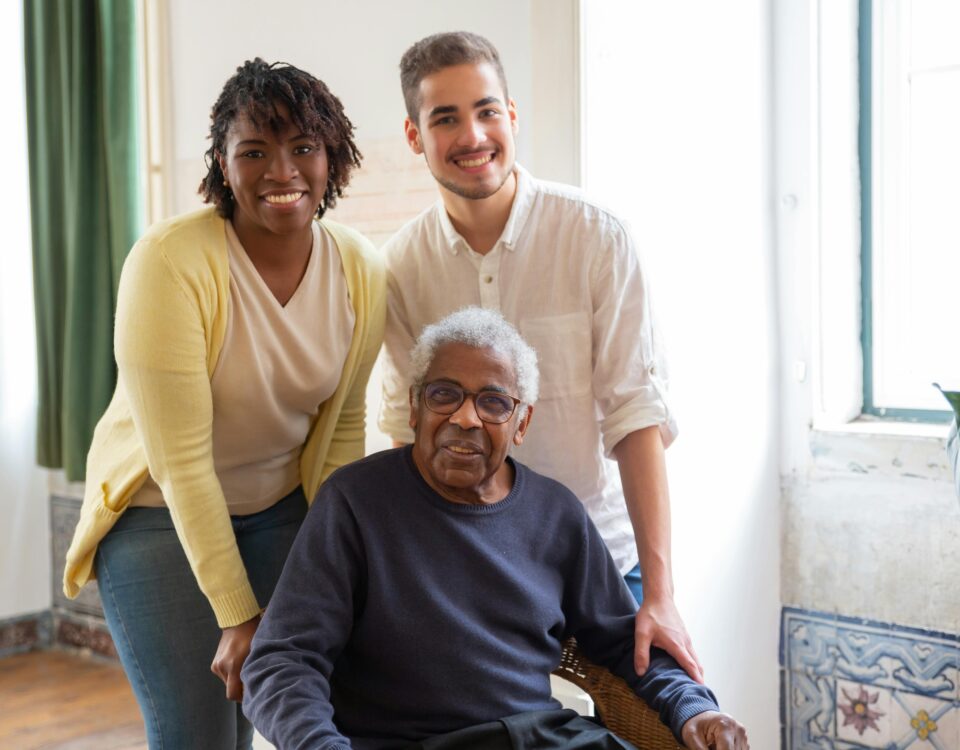You can’t always be there. But we can.
Is Your Parent at Risk for Esophageal Cancer?

Four Common Health Concerns You Might Not Notice
April 9, 2019
Drop Everything and Ask Your Dad These Questions Right Now
April 22, 2019Is Your Parent at Risk for Esophageal Cancer?
Julia’s father, Saul, had always been a hearty eater. He loved the elaborate meals his children hosted on Sunday nights. Everyone brought a dish to pass and he loved to sample them out. But, lately, Julia had noticed that Saul wasn’t as enthusiastic about trying new dishes. In fact, he wasn’t putting much on his plate at all and often didn’t finish what he took, making excuses like having had a late lunch. Julia grew concerned and asked her father what was going on. Saul confessed that he had been having trouble swallowing food. Julia convinced him to see a doctor. When he did, Saul was shocked to learn that he had esophageal cancer.

Elder Care Northridge CA – Is Your Parent at Risk for Esophageal Cancer?
According to the American Cancer Society, more than 17,000 new cases of esophageal cancer are diagnosed in the United States each year. Knowing if your elderly parent is at higher risk for the disease could lead to receiving care sooner.
About Esophageal Cancer
Esophageal cancer is cancer that begins in the long tube that connects the throat to the stomach. It usually starts in the lining of the esophagus and can occur at any point in its length.
There are two main types of esophageal cancer:
Adenocarcinoma: This is the most common type of esophageal cancer. It usually happens in the lower part of the esophagus, closer to the stomach, and starts in the cells that secrete mucus.
Squamous Cell Carcinoma: This kind of cancer starts in the squamous cells of the esophagus, which are the cells that line it. It usually affects the upper and middle part of the tube.
There are some other types of esophageal cancer, but they are rare.
Symptoms of esophageal cancer include:
- Trouble swallowing because the tumor narrows the esophagus.
- Losing weight suddenly and without trying.
- Vomiting food that gets stuck in the esophagus.
- Indigestion and heartburn that are worse than usual.
- Pain, pressure, or burning in the chest.
- Coughing.
Risk Factors
Doctors aren’t certain what causes esophageal cancer. However, several things that increase a person’s chance of getting the disease have been identified.
Risk factors include:
- Obesity.
- Smoking.
- Having GERD.
- Alcohol use.
- Frequently drinking extremely hot beverages.
- Not including enough fruits and vegetables in their diet.
- Having radiation treatment on the chest or upper part of the abdomen.
If your aging parent is at risk for esophageal cancer, an elder care provider can help them to manage their risk factors. An elder care provider can assist with weight loss by cooking balanced, healthy meals instead of the senior relying on convenience foods that are full of fat and sugar. Elder care providers can also support older adults who are trying to quit smoking, offering distraction and companionship when the urge to smoke strikes.
Sources: https://www.mayoclinic.org/diseases-conditions/esophageal-cancer/symptoms-causes/syc-20356084
https://www.cancer.gov/types/esophageal/patient/esophageal-prevention-pdq
https://www.medicalnewstoday.com/articles/172602.php
https://www.cancer.org/cancer/esophagus-cancer/about/key-statistics.html

